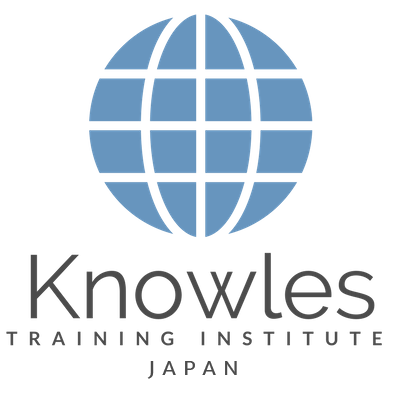360 Degree Feedback Corporate Talk in Japan
In the realm of corporate development, the 360-degree feedback process stands as a powerful tool for fostering growth, enhancing teamwork, and driving organisational success. Now, let’s journey into the heart of Japanese corporate culture, where tradition meets innovation, to explore the transformative potential of 360-degree feedback. Join us for an illuminating talk where we’ll dissect the nuances of this feedback mechanism and uncover its profound impact on individual development and organisational performance within Japan’s dynamic business landscape.
Amidst the intricate web of hierarchical structures and collective harmony that characterise Japanese workplaces, the 360-degree feedback process offers a unique opportunity for holistic growth and collaboration. In this talk, we’ll unravel the intricacies of gathering feedback from multiple sources – peers, supervisors, subordinates, and even external stakeholders – to provide a comprehensive view of individual strengths, areas for improvement, and opportunities for personal and professional development. Get ready to embark on a journey of self-discovery and organisational enhancement as we delve into the transformative potential of 360-degree feedback within the context of Japanese corporate culture.
Talk Objectives:
- Understanding 360-Degree Feedback: The primary objective is to ensure attendees have a comprehensive understanding of the 360-degree feedback process, including its purpose, methodology, and benefits. This involves explaining how feedback is collected from multiple sources, including supervisors, peers, subordinates, and external stakeholders, to provide a well-rounded perspective on an individual’s performance.
- Cultural Adaptation: To address the cultural nuances and considerations specific to implementing 360-degree feedback in a Japanese corporate context. This objective involves exploring how traditional Japanese values such as harmony (wa), humility (kenkyo), and group orientation (tatemae) may influence the feedback process and how to navigate these cultural dynamics effectively.
- Building Trust: To emphasise the importance of trust in facilitating open and honest feedback exchanges within Japanese organisations. This objective includes discussing strategies for building trust among participants, creating a psychologically safe environment for feedback, and fostering a culture of transparency and accountability.
- Feedback Delivery Skills: To equip attendees with the skills necessary to deliver and receive feedback effectively. This objective involves providing guidance on delivering feedback in a constructive and culturally sensitive manner, as well as strategies for receiving feedback with openness and resilience.
- Promoting Self-Awareness: To encourage attendees to develop greater self-awareness through the feedback process. This objective involves facilitating self-reflection exercises, encouraging individuals to identify their strengths and areas for improvement, and promoting a growth mindset that embraces feedback as a catalyst for personal growth.
- Enhancing Leadership Development: To highlight the role of 360-degree feedback in leadership development and succession planning within Japanese organisations. This objective includes discussing how feedback can inform leadership development initiatives, identify high-potential talent, and drive strategic decision-making.
- Driving Performance Improvement: To demonstrate how 360-degree feedback can be used as a tool for driving performance improvement at both the individual and organisational levels. This objective involves discussing how feedback insights can inform goal setting, performance coaching, and professional development plans.
- Fostering Collaboration: To explore how 360-degree feedback can foster collaboration, teamwork, and cross-functional alignment within Japanese organisations. This objective includes discussing how feedback can break down silos, promote knowledge sharing, and enhance communication channels across departments and teams.
- Creating a Feedback Culture: To promote the establishment of a feedback culture that values continuous improvement and learning. This objective involves discussing strategies for embedding feedback practices into everyday workflows, normalising feedback conversations, and recognising and rewarding feedback behaviours.
- Measuring Impact and ROI: Finally, to address how organisations can measure the impact and return on investment (ROI) of their 360-degree feedback initiatives. This objective involves discussing key performance indicators (KPIs) for evaluating the effectiveness of feedback programmes, as well as best practices for tracking and assessing feedback outcomes over time.
As we draw our discussion on 360-degree feedback to a close, let’s not overlook the opportunity it presents for personal and organisational growth. I invite you to join us for our upcoming lunch talk, where we’ll delve deeper into the transformative power of 360-degree feedback within the context of Japanese corporate culture. Take the proactive step towards fostering collaboration, driving performance improvement, and cultivating a culture of continuous learning and development by signing up now.
Reserve your spot today and unlock the potential of 360-degree feedback to propel your career and organisation to new heights. Don’t miss out on this invaluable opportunity to gain insights, exchange perspectives, and network with like-minded professionals. We look forward to welcoming you to an enriching experience that will equip you with the tools and strategies needed to thrive in today’s dynamic business landscape.
More Information:
Duration: 60 minutes
Fees: $1299.97 USD 679.97
For more information please contact us at: contact@knowlesti.co.jp
If you would like to register for this talk, fill out the registration form below.
The Best Corporate Lunchtime Talks, lunch and learn, Lunch Talks in Japan

